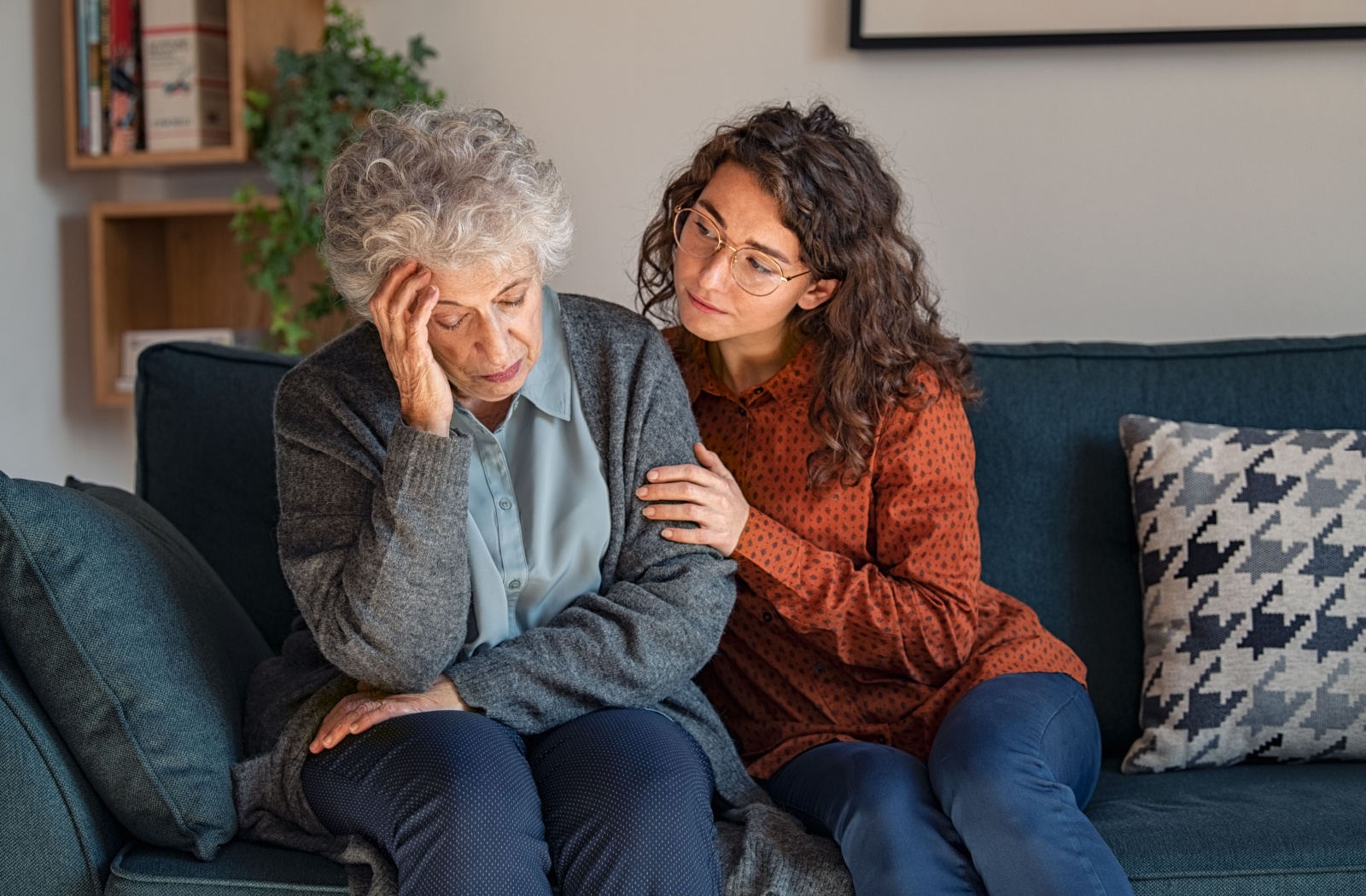Key Takeaways
- Stress is a natural physical response, but long-term or chronic stress can affect your body in noticeable ways.
- Common life changes can be sources of stress for older adults, such as managing health issues and experiencing loneliness.
- Physical signs of chronic stress can include headaches, digestive issues, and changes in sleep or appetite.
- You can manage stress through positive actions, like gentle exercise, connecting with others, and mindfulness.
- Choosing a supportive lifestyle, such as in a senior living community, can help reduce daily stressors and improve overall well-being.
You know that feeling—the flutter in your chest before you speak to a crowd or the tension in your shoulders during a busy day.
That’s stress, your body’s natural alarm system. It’s a normal part of life, but when it sticks around for too long, it can start to feel less like a temporary alert and more like a constant companion that can affect your body in noticeable ways.
So, how does this ongoing pressure affect your physical health?
Chronic stress can have a direct and significant impact on your body, influencing everything from how well you sleep to how your muscles feel day to day. However, understanding this connection is the first step toward achieving balance and nurturing your overall well-being.
What Is Stress and How Does It Work?
Think of stress as your body’s reaction to a challenge. You may have heard of the “fight-or-flight” response. When you feel stressed, your body releases hormones that get you ready for action.
You might notice a few things happen right away:
- Your heart might beat a little faster
- Your muscles may feel tight and ready to move
- Your breathing could become quicker and shallower
The human stress response helps you handle a challenge in the moment effectively . However, when stress becomes a long-term guest—changing from a healthy stress response to persistent anxiety—it can start to wear on your physical health.
Common Causes of Stress for Older Adults
Life is a tapestry of experiences, and some threads can certainly bring a bit of tension. As we move through different chapters, new sources of stress can appear. For many older adults, these challenges can feel familiar.
Common stressors often include things like:
- Managing a long-term health condition
- The responsibilities of caring for a loved one
- Navigating feelings of loss or grief
- Experiencing loneliness or social isolation
- Worrying about finances or budgeting
- Adjusting to life shifts, like retirement or moving homes
The Physical Signs of Long-Term Stress
When stress becomes a constant in your life, your body often sends signals that it’s feeling the strain. It’s helpful to listen to these cues. Recognizing signs is the first step toward feeling healthier, happier, and ready to engage with all life has to offer.
How Chronic Stress Affects Your Body
Living with ongoing stress can contribute to a wide range of physical issues. You might notice your body trying to tell you something is off.
These signs can include:
- Frequent headaches or unexplained body aches
- Digestive troubles or an upset stomach
- Changes in sleep patterns, like insomnia or daytime exhaustion
- A shift in your appetite or your weight
- A racing heart or changes in blood pressure
Stress and Its Impact on Physical Activity
Feeling overwhelmed can also make it tougher to get up and move. When your energy is zapped by stress, you may not feel motivated to exercise.
Experiencing an extended period of inactivity can create a cycle where being less active actually makes you feel even more stressed.
Stress and Cognitive Function
Ongoing stress doesn’t just affect your body—it can impact your mind, too. You might find it harder to focus or notice little slips in your memory, and the connection between sleep and cognitive decline can become more pronounced.
A supportive environment, like that found in memory care programs, can help individuals navigate these changes with confidence and connection.

Positive Ways to Manage Stress and Feel Your Best
The good news is that you have the power to manage stress and its effects. Finding strategies that bring you a sense of calm can make a world of difference in your daily life.
Sometimes, a change of scenery in a community offering independent living or assisted living can also remove daily stressors and open up new possibilities.
Move Your Body
Gentle exercise like a walk in the park, water aerobics, or tai chi releases endorphins, which are natural mood-lifters.
Eat a Balanced Diet
Enjoying nutritious, flavorful food gives your body the fuel it needs to handle life’s demands. Many senior living communities offer dining programs that make healthy eating a delicious social event.
Prioritize Rest
A good night’s sleep is restorative for both your physical and mental well-being. If you’re struggling to get the rest you need, try rebuilding your sleep routine with simple, healthy habits.
Connect with Others
Sharing a laugh with a friend or joining a club can combat feelings of loneliness and build a strong support system.
Practice Mindfulness
Appreciating and accepting the positives in your present life can help relieve anxiety. Simple activities, like deep breathing, listening to music, or spending time in nature, can help calm your thoughts and relax your body.
Choosing a Lifestyle That Supports Well-Being
Taking care of yourself by managing stress is a key part of living a full and vibrant life. One powerful way to reduce daily pressures is to simplify your surroundings.
Getting a little support with daily tasks in a personal care or skilled nursing setting can free up your energy for what truly matters to you.
A senior living community offers a lifestyle free from the hassles of home maintenance. Imagine days filled with opportunities for social connection, fitness, and fun, without a long to-do list. When you remove those daily burdens, you create more space for a relaxed and fulfilling life.
At Juniper Village at Washington Square, we believe your third act is a time for connection, purpose, and joy. It’s about creating a life that feels good on your own terms. If you’re ready to explore a lifestyle with less stress and more living, we’d love to connect.
Contact us today or schedule a tour to see how our community can nurture your spirit.







